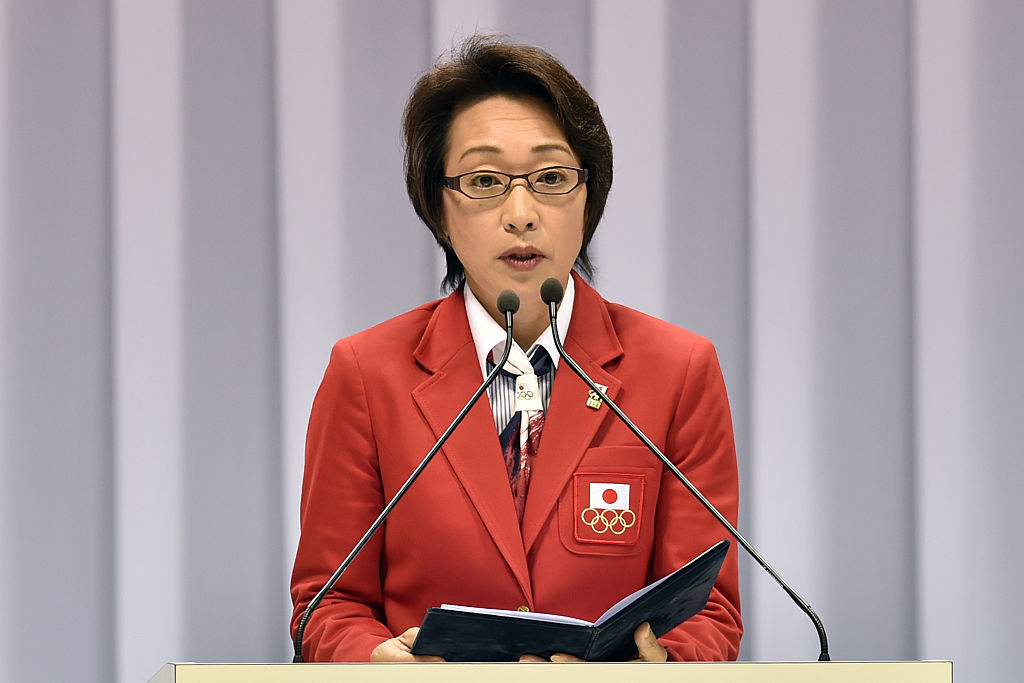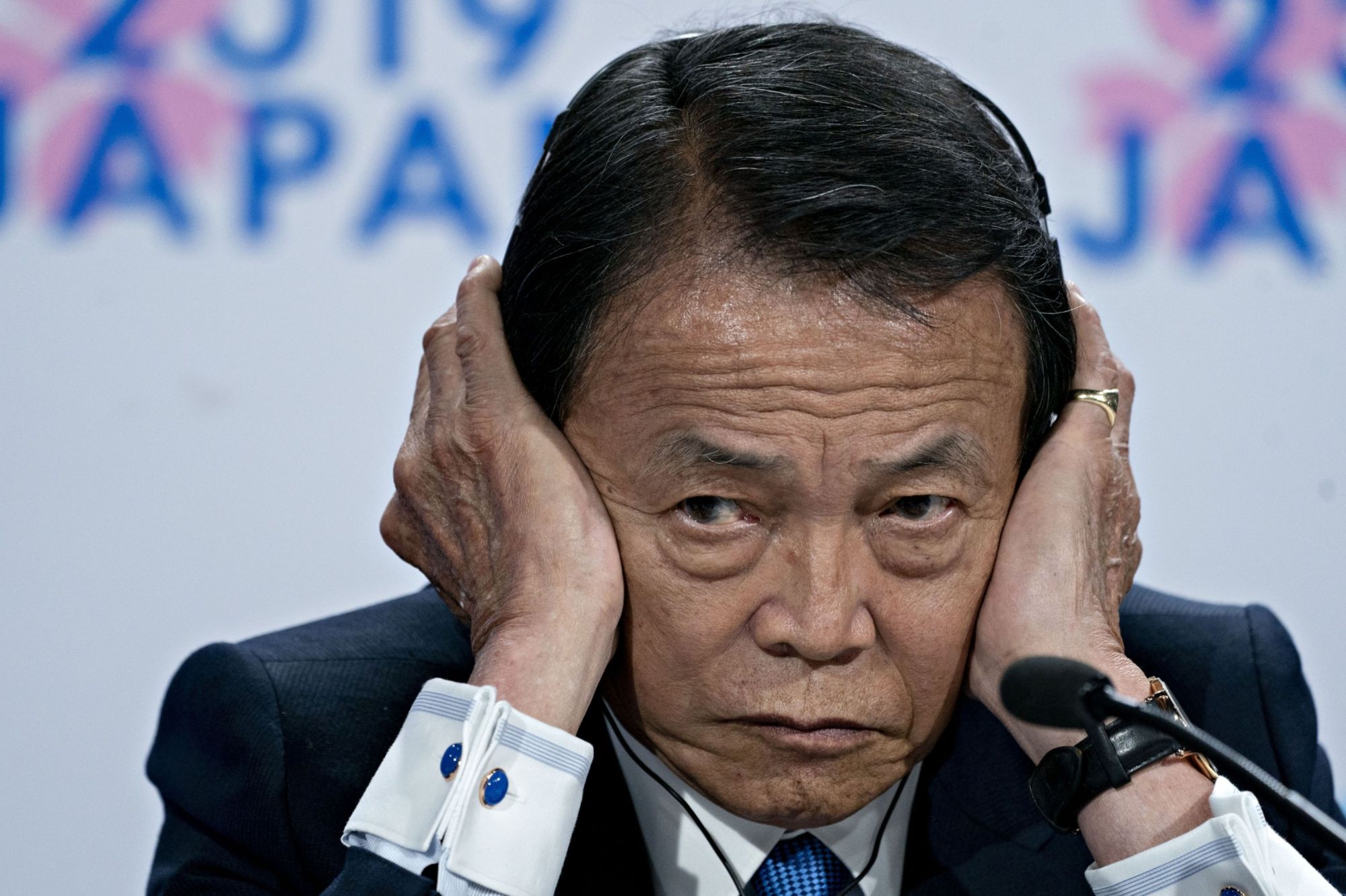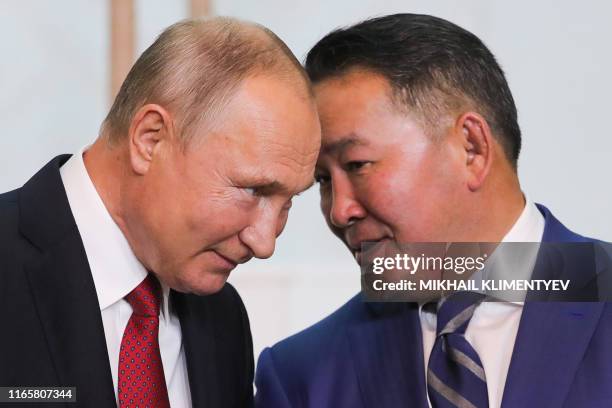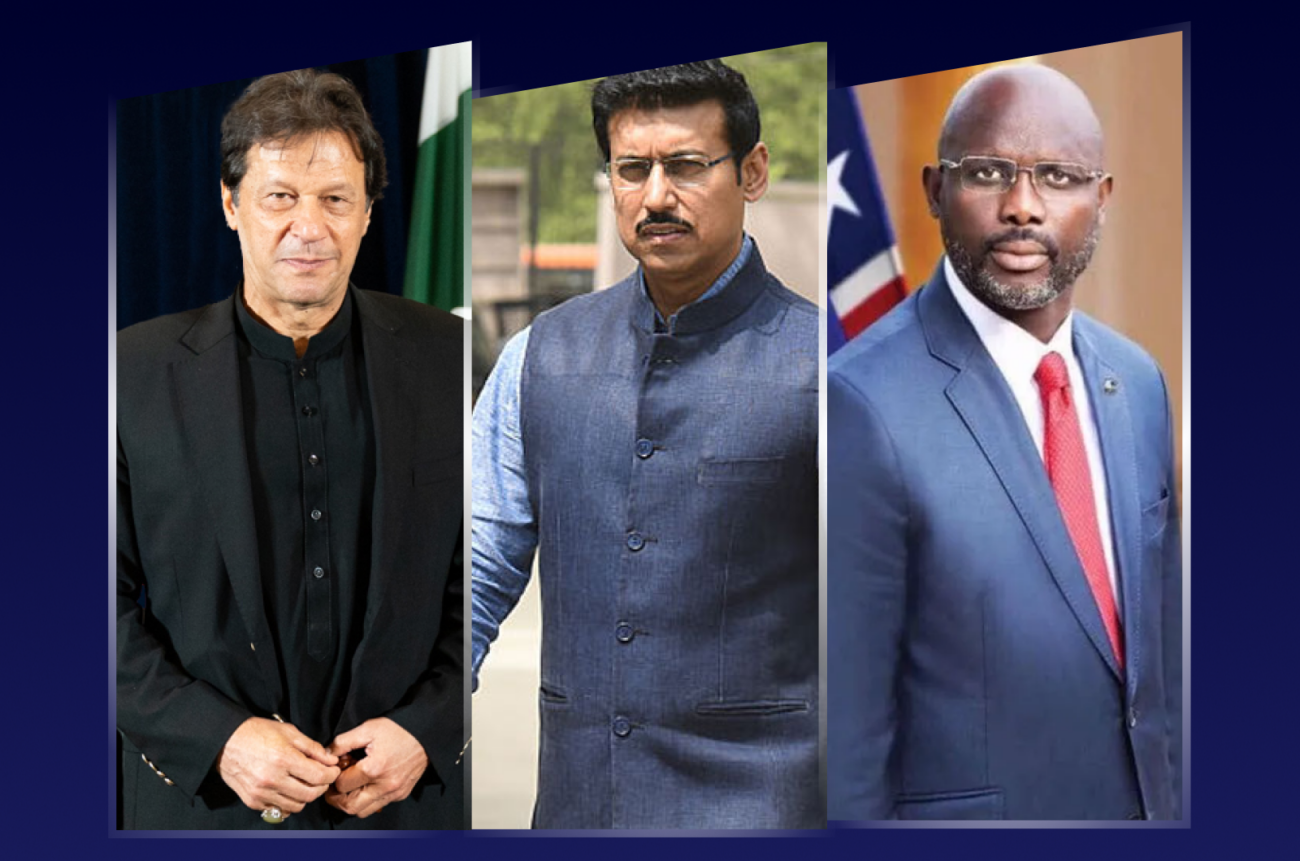Famous Sportspeople who tried their luck in Politics
It is not surprising that there are so many athletes who go on to become politicians later in life because athletes naturally make good leaders. But not everyone is allowed to serve in a position of authority, such as that of governor or cabinet minister. One of the best boxers in history is a leading contender for the presidency of the Philippines, which is why many people are paying attention to the election. Let’s have a look at some of the most famous sportspeople who tried their luck in Politics.
Famous Sportspeople who tried their luck in Politics
Rajyavardhan Singh Rathore — Former Union Minister of State, India
Rajyavardhan Singh Rathore has made a successful transition from sports to politics, possibly the best in India. Rathore, one of the nation’s best shooters, took home the silver medal in double trap at the 2004 Summer Olympics in Athens. Rathore was the first Indian to take home an individual silver medal since the nation’s independence, and it was India’s only medal at the competition. Rathore was a serving Indian Army officer at the time. Together, these elements gave his accomplishment an incredibly spectacular appearance, elevating Rathore to a god-like position at home.

Source: Wikimedia Commons
He accomplished other things as a shooter besides Olympic success, though. At the 2002 Commonwealth Games in Manchester, in men’s double trap, Rathore won a gold medal and gained recognition. He also teamed up with Moraad Ali Khan at the same competition to take home the gold in the team division.
At the 2006 Commonwealth Games in Melbourne, he successfully defended his solo championship and shared the silver medal with Vikram Bhatnagar in the team competition. At the Asian Games in Doha that same year, he took home silver in the men’s pairs double-trap and bronze in the men’s solo double-trap.
Rathore received the fourth-highest civilian distinction in India, the Padma Shri, in 2005 for his outstanding athletic accomplishments. Rathore, who was born on January 29, 1970, in Jaisalmer, entered politics after leaving the Indian Army and giving up sports. He ran for the Lower House of Parliament in the 2014 general elections as a Bharatiya Janata Party (BJP) candidate from the Jaipur Rural seat. From the same constituency, he was re-elected in the general elections of 2019.
Many Indian athletes transitioned into politics after leaving their respective sports, but Rathore also made a name for himself working in politics. Many Indian athletes transitioned into politics after leaving their respective sports, but Rathore also made a name for himself working in politics. Rathore has served in the government in important ministerial positions. From 2014 to 2017, he served as a Union Minister of State in the Ministry of Information and Broadcasting. From 2018 to 2019, he had an independent position. Between 2017 and 2019, he also held the position of minister of state (independent charge) for the Ministry of Youth Affairs and Sports.
Imran Khan — Prime Minister of Pakistan
In the world of sports, Imran Khan is most remembered for leading Pakistan to victory in the 1992 Cricket World Cup. Khan made his international cricket debut in 1971 with a Test match against England. Khan was born on October 5, 1952, into a wealthy family in Lahore. Khan dominated the game as an all-around player during his illustrious athletic career, which concluded with the 1992 World Cup win.
In just 88 Tests, he amassed 3807 runs, including six centuries, for an average of 37.69 runs per match while taking 362 wickets at a 22.81 average. Khan amassed 3709 runs while taking 182 wickets in 175 matches of the game’s limited-overs format, with an average of 26.61.

Creator: MOHAMMAD ISMAIL | Credit: REUTERS
Khan, a graduate of the University of Oxford, is of Pashtun descent. After leaving cricket, he didn’t pursue politics right away; instead, he worked as a philanthropist for a while. Khan officially entered Pakistan’s contentious political scene in 1996 when he created the Pakistan Tehreek-e-Insaf (PTI). Khan put a lot of effort into cultivating his reputation as an anti-corruption crusader, despite PTI’s electoral troubles. He was elected to the Pakistani National Assembly in 2002 when his party won one seat.
As he continued to win support from Pakistani society, Khan established himself as a strong opponent. Khan was temporarily detained in 2007 while protesting the rule of Pervez Musharraf. Finally, in 2013, his party secured enough seats to establish itself as a significant challenger to Prime Minister Nawaz Sharif’s Pakistan Muslim League-Nawaz (PML-N) administration.
Elections were held in 2018 after Sharif was removed from office in 2017 because of the Panama Papers controversy. In the polls, PTI was found to be the single-largest party. After that, Khan put together a coalition government to become Pakistan’s 22nd prime minister, joining the select group of athletes who became politicians and held powerful positions.
George Weah — President of Liberia
The illustrious Liberian player, one of the best athletes to enter politics, is currently leading his nation as its 25th president. Weah, who was born on October 1st, 1966, in Monrovia, the capital of Liberia, began playing football at a young age using homemade rag balls. After several early victories in Africa, he was acquired by Monaco of the French Ligue 1. The striker contributed significantly to the squad’s triumphs throughout his five-year tenure with the club, which spanned from 1988 to 1992. This included helping the team win the Coupe de France in 1991.

Creator: Gary M. Prior | Credit: Getty Images
From 1992 to 1995, Weah, a superstar in France, was a player for Paris Saint-Germain (PSG). His remarkable goal-scoring during this time helped the squad win the Ligue 1 (1994), Coupe de la Ligue (1993 and 1995), and the Coupe de France (1995). Additionally, he led the 1994–1995 UEFA Champions League in goals scored. While playing for Italian club AC Milan from 1995 to 2000, he also twice won the Serie A league championship (1996 and 1999). In 1995, he became the first and only African football player to get the Ballon d’Or award.
Weah started his political career in 2003 and unsuccessfully ran for president the following year. But he persisted in his years-long endeavors to restore stability and peace to his country, which had been devastated by war. Finally, in 2014, Weah from Montserrado County was elected to the Liberian Senate, and three years later, he was elected president. The following year, Weah took office.
Seiko Hashimoto — Former Minister in charge of the Tokyo Olympic and Paralympic Games, Japan
Hashimoto is an exceptional athlete turned politician, being one of only a few females to have achieved success in both fields. Recently, she has been the president of the Tokyo Olympic organizing committee for the 2020 Tokyo Olympics, showing off her impressive skills in both sports and government. After Gianna Angelopoulos-Daskalaki of Greece, who led the organizing committee for the 2004 Athens Olympics, Hashimoto was appointed to the position and became the second woman in the world to hold the position.
Hashimoto enjoys the distinction of standing out in both politics and sports. Her name was derived from the Japanese term for the Olympic flame, “Seika,” and she was born on October 5, 1964, five days before the opening ceremony of the Tokyo Olympics.

Creator: Atsushi Tomura | Credit: Getty Images Copyright: 2016 Getty Images
With four appearances in the winter and three in the summer, Hashimoto has the most “multi-season” appearances in the Olympics. She debuted as a speed skater at the 1984 Winter Olympics in Sarajevo and then competed in the 1988 Winter Olympics in Calgary, the 1992 Summer Olympics in Albertville, and the 1994 Winter Olympics in Lillehammer. At the Albertville Olympics, Hashimoto earned a bronze medal in the 1500 m speed skating competition.
She also participated in summer competitions as a track cyclist at the Olympics in 1988 in Seoul, 1992 in Barcelona, and 1996 in Atlanta. Hashimoto, an LDP member, was chosen for the House of Councillors for the first time in 1995 and has since been re-elected five times. Hashimoto became the first upper-house legislator in Japan to give birth while in office and the first politician in her nation to take maternity leave when her first child, a daughter, was born in 2000.
Hashimoto served in several governmental positions before becoming the helm of the Tokyo Olympics. In the Cabinet of the then-prime minister Tar As, she was appointed senior vice-minister for foreign affairs in 2008. In the LDP Shadow Cabinet, she was appointed minister for measures to combat the declining birthrate, sports, and gender equality in 2010.
She was appointed to the Cabinet of then-prime minister Shinzo Abe in 2019 and given the titles of a minister in charge of the Tokyo Olympic and Paralympic Games, minister in charge of women’s empowerment, and minister of states for gender equality.
Tarō Asō — Former Prime Minister of Japan
From 24 September 2008 to 16 September 2009, the head of the Liberal Democratic Party (LDP) took over as prime minister of Japan after Fukuda Yasuo. He was appointed deputy prime minister and assigned responsibility for the finance ministry along with two other ministries three years later. On October 4, 2021, Fumio Kishida, Japan’s 100th prime minister, refreshed the Cabinet, bringing an end to his administration.
Asō, the longest-serving finance minister and deputy prime minister in postwar Japanese history, is currently the vice president of the LDP. Since being initially elected to the Diet in 1979, he has served as a member of the House of Representatives ten times. Asō, a wealthy businessman who was born on September 20, 1940, is the grandson of former Japanese Prime Minister Yoshida Shigeru and the husband of former Prime Minister Suzuki Zenk. When his sister Nobuko wed an emperor Akihito’s relative and became Princess Tomohito of Mikasa, he also acquired a family connection to the imperial dynasty.

Creator: Andrew Harrer | Credit: Bloomberg Copyright: © 2019 Bloomberg Finance LP
Asō most well-known accomplishment outside of politics and his family business is as a skilled skeet shooter. In his prime, he spent more than a decade competing at the highest level on the national stage. His shooting prowess got him into the 1976 Summer Olympics in Montreal. He failed to medal and did not take part in any subsequent Olympics. Asō is one of the best athletes who went on to become a politician, though.
Khaltmaagiin Battulga — Former President of Mongolia
Battulga made a name for himself as a sambo expert throughout the 1980s, excelling in domestic and international competitions. He was later elected to lead the Mongolian Judo Association. At the 2008 Summer Olympics in Beijing, the nation received its first Olympic gold medal during Battulga’s presidency.
His sports accomplishments also aided his rise to prominence as a businessman in his nation. His first company, Genco Holding, was named after the fictional one Vito Corleone held in Francis Ford Coppola’s The Godfather (1972). The firm is among the biggest holding businesses in Mongolia.

Creator: MIKHAIL KLIMENTYEV | Credit: AFP via Getty Images
Battulga was elected to serve in the State of Great Khural in 2004. (Mongolian parliament). He was appointed minister of transportation and urban development four years later, a position he held until 2012. In the following two years, up to 2014, he served as minister of industry and agriculture.
A member of the Democratic Party, Battulga ran for president of the nation in 2017. After the Mongolian People’s Republic collapsed in 1992, he ran as a messiah of the underprivileged and won both the first round and the runoff to become the country’s fifth president.
The Democratic Party’s Khaltmaa Battulga was elected president of Mongolia in 2017 after taking both the first and second rounds of voting. He positioned himself as the poor people’s messiah. Since the dissolution of the Mongolian People’s Republic in 1992, Battulga has served as the country’s fifth president.
A 2019 constitutional amendment extended the president’s term from four to six years, but it also prohibited all future presidents—including the one in office now—from serving more than one term. Due to the ensuing political upheaval, Battulga was unable to run for re-election.




